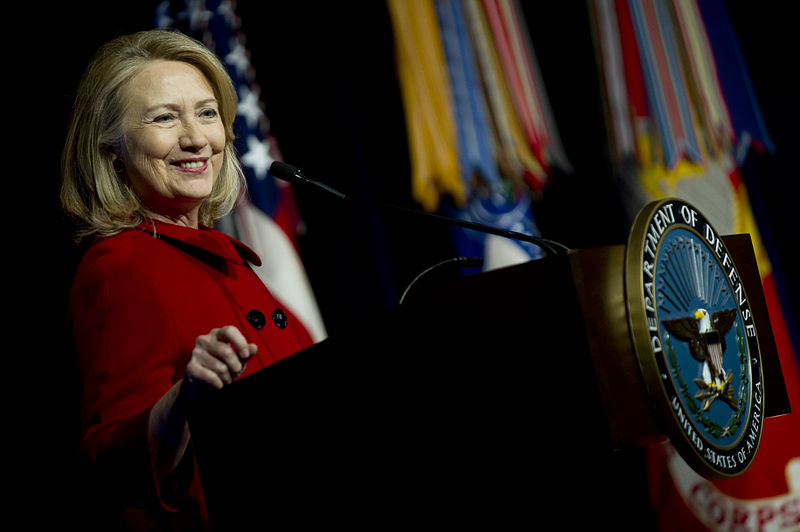The Media’s Obsession with Female Politicians

Photo courtesy of Secretary of Defense
Hillary Clinton has been in the news a lot lately since making the announcement she will be running for president. However, while much of the news has focused on her competency as a candidate, there has still been much preoccupation surrounding her body. It seems that most female candidates suffer from this extra scrutiny just because they happen to be women. Any female politician must be ready to face the media not just in terms of their political views, but they must also be prepared to be judged for their age, looks, body, family life, and more. Female politicians inevitably deal with much more stress and pressure than what any male politician must deal with due to added gendered factors.
The most recent example of the media writing a completely unnecessary article that had no relevance to Clinton’s capability as a candidate is TIME magazine’s article entitled “Hillary Clinton Is the Perfect Age to Be President.” In this article, Dr. Julie Holland claims that because Clinton is post-menopausal she is the perfect age to be president. Holland sates, “Biologically speaking, postmenopausal women are ideal candidates for leadership. They are primed to handle stress well, and there is, of course, no more stressful job than the presidency.” While I do not doubt that Holland is probably trying to promote Clinton’s ability to be a prime candidate, my problem is that this statement simultaneously puts down women that are premenopausal or going through menopause as it implies that they are somehow not capable. What about the millions of women around the world who get their period once a month but still manage to run businesses, be congresswoman, take care of their families, work more than one job, get an education, and more? Holland essentially degrades and belittles women who menstruate or who are going through menopause, but these women still succeed in living their everyday lives, accomplishing goals and tasks just as well as men in spite of menstruation.
Secondly, the fact that this article was even written in the first place is the most disturbing. By putting emphasis on Clinton’s body, it contributes to the media’s fixation in making “news” articles that concentrate on female politicians’ bodies rather than their actual character. An article like this may appear to be praising Clinton by defending her age, but whether Clinton is menopausal or not is completely irrelevant to whether she is suited to be president. This article takes away the public’s focus from Clinton’s character as a person and places it on her body and biology. And this is not the first time Clinton has had articles written about her that discuss matters other than her political viewpoints. Clinton has also faced harsh criticism over the years about her makeup and clothing choices. By continuing to focus on the female body, the media perpetuates that this is a normal and acceptable way to, in effect, objectify female politicians.
Not only is the media distracted by female candidates’ bodies, but they obsess over the mere fact that they are women in the first place. Bill O’Reilly asked two guests, who were women, if there was a downside to having a woman as president. This is an outright sexist question as you would never hear someone ask a man if there is a downside to having a man as president. Female politicians are faced with criticism questioning their abilities simply because they are women. In talking about the ability to be president, O’Reilly states, “Men are men, and women are women, and there is a difference between the genders.” In that same interview, O’Reilly goes on to make blatantly inaccurate statements about how Muslim countries would not work with Clinton because they do not believe in the equality of the sexes, and that Vladimir Putin or the Chinese would test Clinton’s toughness as a woman by moving warships around on purpose. All of these questions stem from stereotypical perceptions about gender that perceive women as more emotional, and thus weaker than men. While we may question a male president’s toughness, in questioning a woman’s toughness the media attaches it to her gender, not to her character. O’Reilly seems to be forgetting that we have had female secretary of states, like Condoleezza Rice and Hillary Clinton, who successfully negotiated with countries around the world.
It is incredible to think that we are still asking the question of whether women can lead just as well as men when we have women around the world doing it at the very moment. For example, Angela Merkel is the chancellor of Germany and Park Geun-hye is the president of South Korea. The media needs to stop wasting its energy on meaningless articles about female politicians’ bodies and stop comparing female candidates to their male counterparts. Gender has nothing to do with the merit of female candidates. Instead, the media should stick to the main point of the election, which is who is the better candidate.




